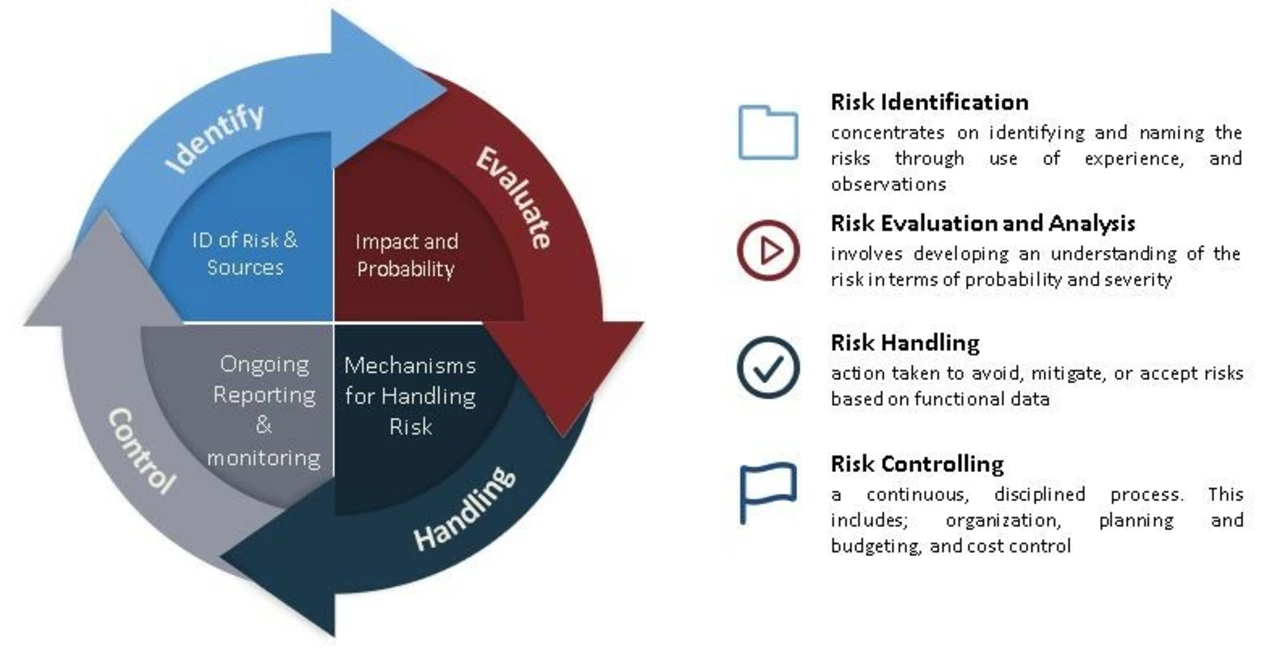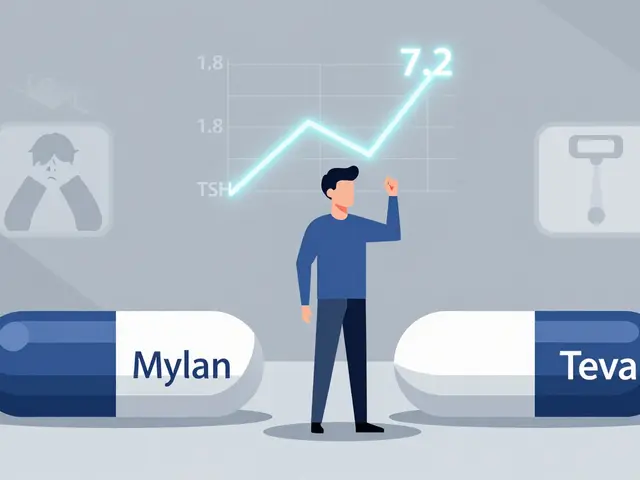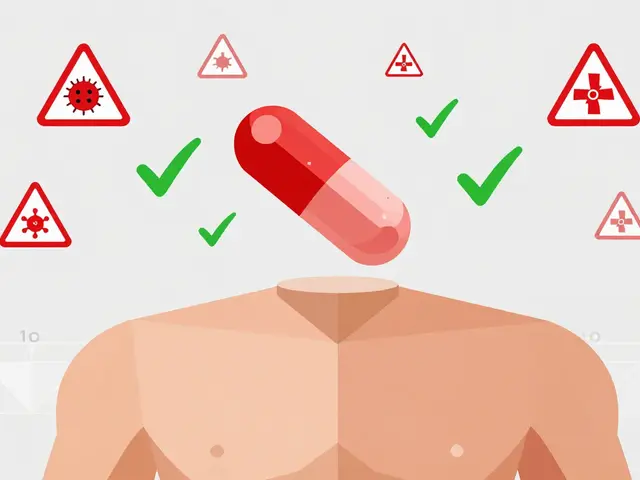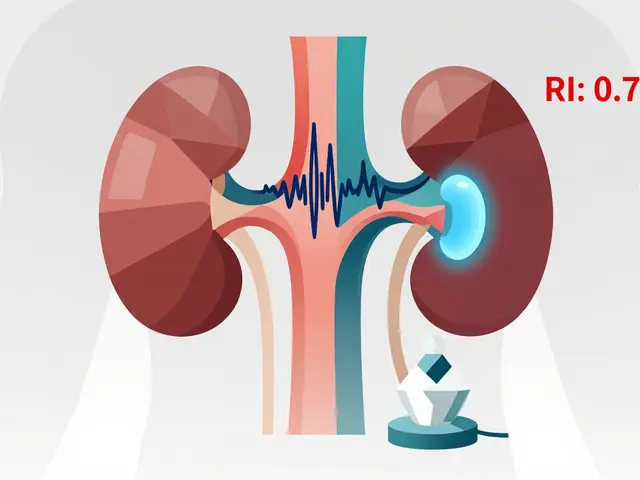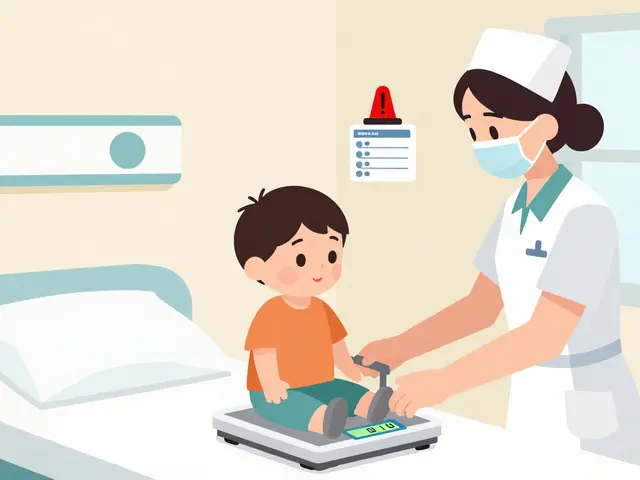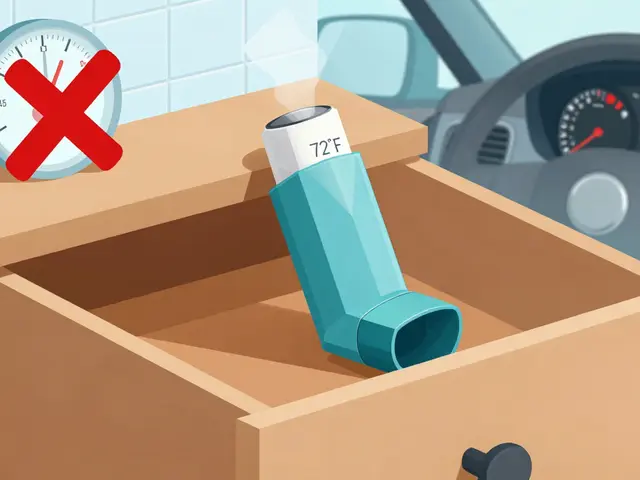Effectiveness: How to Tell If a Medicine Really Works
Want to know if a drug will help you or just sound promising on paper? Effectiveness means the medicine achieves the results patients actually need — not just neat lab numbers. On this tag page you’ll find practical tips to judge meds, plus linked posts that compare real options, like inhalers, diabetes pills, and antibiotics.
Start by asking one clear question: what outcome matters to you? For asthma or COPD that might be fewer flare-ups. For diabetes it's lower A1c. For pain or urinary symptoms it’s faster relief. If a study or product page doesn’t state the outcome, treat claims with caution.
Quick ways to judge a drug's effectiveness
Check the trial outcome, not just statistical words. 'Significant' can mean a tiny change that doesn’t help daily life. Look for how much symptom improvement or how many people got better, and how long the benefit lasted. For example, comparison posts on Breztri vs competitors focus on real outcomes like fewer hospital visits — that’s more useful than a single lung-function number.
Size and length of studies matter. Small, short trials can miss side effects or long-term drop in benefit. Bigger, longer trials give more confidence. Also watch who was studied: results in young adults might not apply to older patients with multiple problems.
Real-world evidence beats ads. Reviews from real patients, registry data, and follow-up studies show how a medicine performs outside ideal lab conditions. Posts that compare alternatives — like Toprol options or new diabetes pills — often point out differences between trial results and what people actually experience.
Common things that hide true effectiveness
Adherence. A pill can only work if you take it as prescribed. If a drug causes bad side effects or has a complex schedule, many people stop early and the real benefit drops. Articles about tapering gabapentin or dosing Sustiva highlight how sticking to a plan changes outcomes.
Drug interactions and dosing errors change results. A safe, effective dose in studies can be different when taken with other meds. Terazosin interactions and Neoral’s monitoring steps show why your doctor’s checks matter for real benefit.
Cost and access matter too. If a cheaper alternative or a discount program makes you more likely to keep taking treatment, that can make it more effective in real life than a pricier option with slightly better trial numbers. That’s why GoodRx alternatives and discount comparisons show up under this tag.
Want specifics? Browse the posts tagged 'effectiveness' for head-to-head comparisons, practical patient advice, and buying tips for medicines like antibiotics, inhalers, and heart drugs. Each article tries to show what works in real life, not just in a lab.
If you want help with one medicine — say comparing inhalers, finding the best diabetes pill, or checking interaction risks — tell me which one and I’ll point you to the most useful posts and key facts to watch for.
After researching and examining the effects of Clenbuterol, it appears that this drug does indeed aid in weight loss. However, it's not as simple as it sounds. Clenbuterol was originally designed to treat asthma, but its thermogenic effects have made it popular for weight loss and bodybuilding. Despite its effectiveness, it comes with a slew of potential side effects, like heart palpitations and high blood pressure. Therefore, while it works, it's crucial to consider its potential risks before deciding to use Clenbuterol for weight loss.
Continue reading...
As a blogger, I've recently looked into the effectiveness of Quetiapine for managing acute mania. From my research, I've found that this atypical antipsychotic medication can help manage manic episodes by reducing symptoms such as racing thoughts, agitation, and mood swings. Studies show that Quetiapine can be a useful treatment option for those with bipolar disorder experiencing acute mania. However, it's essential to consult with a doctor to ensure Quetiapine is the right choice for each individual, as potential side effects and drug interactions must be considered. Overall, Quetiapine can be a helpful tool in managing acute mania for some patients, but professional guidance is crucial.
Continue reading...


